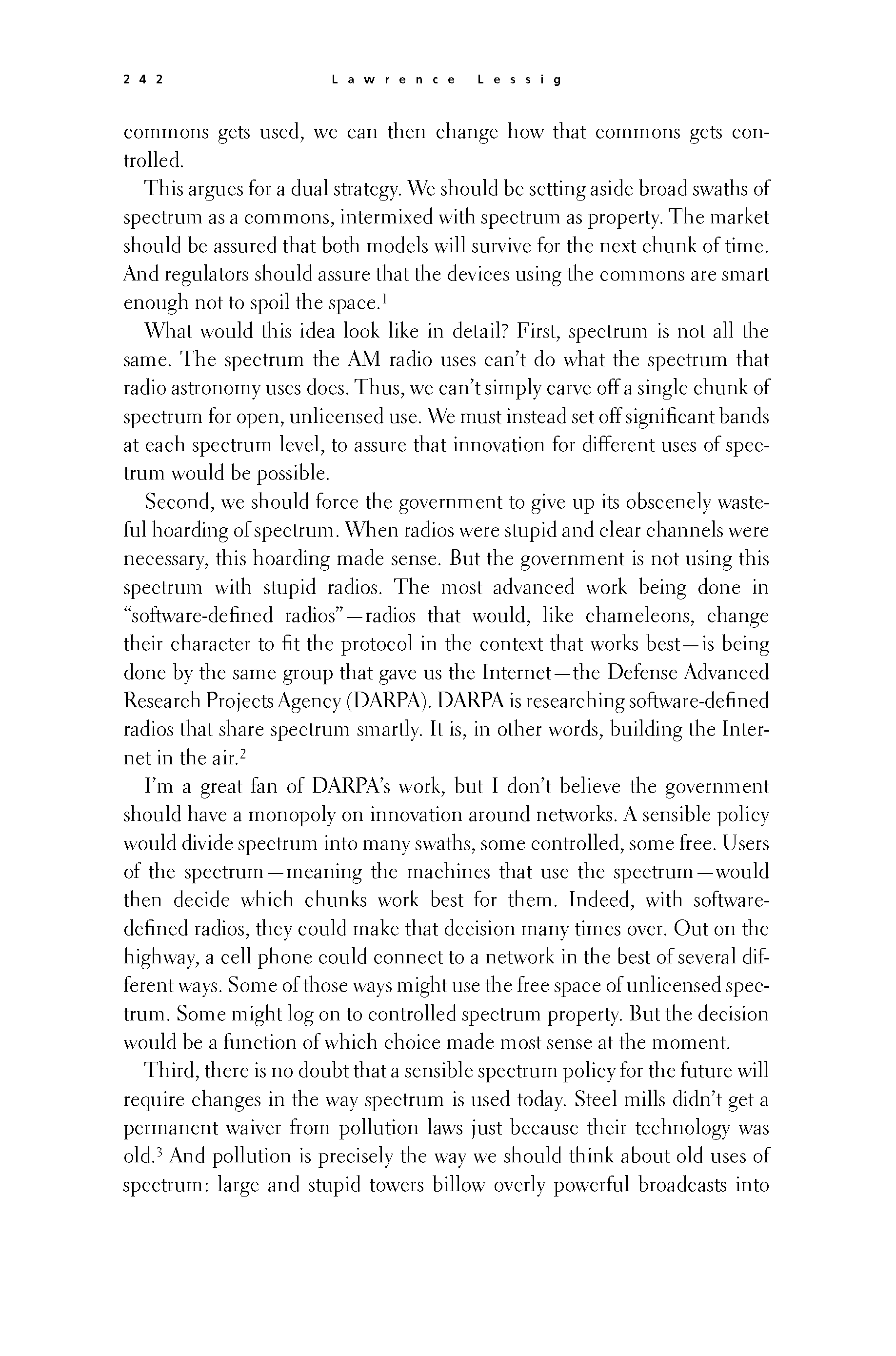 p241 _
-chap- _
toc-1 _
p242w _
toc-2 _
+chap+ _
p243
p241 _
-chap- _
toc-1 _
p242w _
toc-2 _
+chap+ _
p243
commons gets used, we can then change how that commons gets con-
trolled.
This argues for a dual strategy. We should be setting aside broad swaths of
spectrum as a commons, intermixed with spectrum as property. The market
should be assured that both models will survive for the next chunk of time.
And regulators should assure that the devices using the commons are smart
enough not to spoil the space.[14-1]
What would this idea look like in detail? First, spectrum is not all the
same. The spectrum the AM radio uses can't do what the spectrum that
radio astronomy uses does. Thus, we can't simply carve off a single chunk of
spectrum for open, unlicensed use. We must instead set off significant bands
at each spectrum level, to assure that innovation for different uses of spec-
trum would be possible.
Second, we should force the government to give up its obscenely waste-
ful hoarding of spectrum. When radios were stupid and clear channels were
necessary, this hoarding made sense. But the government is not using this
spectrum with stupid radios. The most advanced work being done in
"software-defined radios" -- radios that would, like chameleons, change
their character to fit the protocol in the context that works best -- is being
done by the same group that gave us the Internet -- the Defense Advanced
Research Projects Agency (DARPA). DARPA is researching software-defined
radios that share spectrum smartly. It is, in other words, building the Inter-
net in the air.[14-2]
I'm a great fan of DARPA's work, but I don't believe the government
should have a monopoly on innovation around networks. A sensible policy
would divide spectrum into many swaths, some controlled, some free. Users
of the spectrum -- meaning the machines that use the spectrum -- would
then decide which chunks work best for them. Indeed, with software-
defined radios, they could make that decision many times over. Out on the
highway, a cell phone could connect to a network in the best of several dif-
ferent ways. Some of those ways might use the free space of unlicensed spec-
trum. Some might log on to controlled spectrum property. But the decision
would be a function of which choice made most sense at the moment.
Third, there is no doubt that a sensible spectrum policy for the future will
require changes in the way spectrum is used today. Steel mills didn't get a
permanent waiver from pollution laws just because their technology was
old.[14-3] And pollution is precisely the way we should think about old uses of
spectrum: large and stupid towers billow overly powerful broadcasts into
[[242]]
p241 _
-chap- _
toc-1 _
p242w _
toc-2 _
+chap+ _
p243